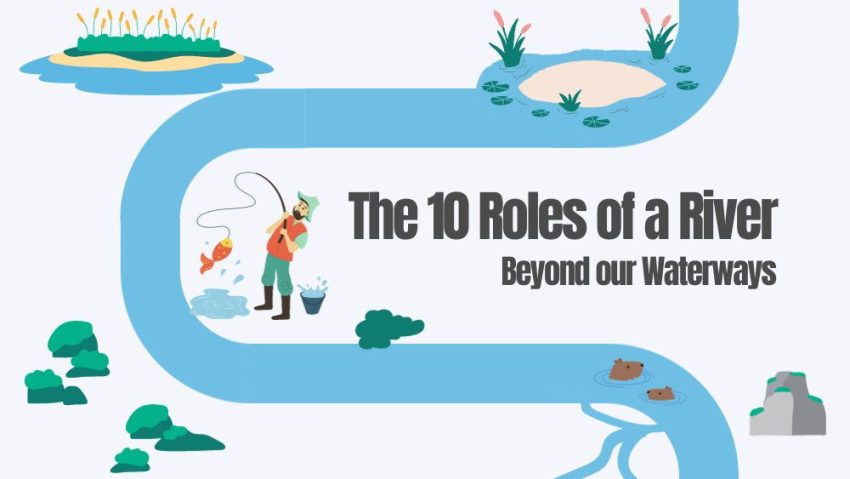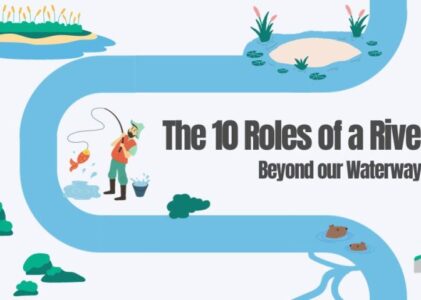Uganda, often called the “Pearl of Africa,” is blessed with numerous rivers that crisscross its lush landscapes. These waterways, including the mighty Nile, have the potential to play crucial roles in the nation’s development and ecological balance. However, many of Uganda’s rivers are currently underutilised and face various challenges. This article explores the potential roles of Uganda’s rivers and the hurdles in realising their full potential.
1. Water Supply: A Resource at Risk
Uganda’s rivers could be vital sources of freshwater for both urban and rural communities. However, many Ugandans still lack access to clean water due to pollution and inadequate infrastructure. Rivers like the Rwizi, which supplies water to Mbarara, face threats from industrial pollution and agricultural runoff, compromising their role as reliable water sources.
2. Biodiversity: Threatened Ecosystems
Uganda’s rivers support diverse ecosystems, but these are under increasing pressure. The Mpanga River, for instance, hosts unique species but faces challenges from deforestation and overfishing. Without proper management, the rich biodiversity of Uganda’s riverine ecosystems could be lost.
3. Food Security: Untapped Potential
While rivers like the Albert Nile and Lake Kyoga support local fisheries, much of Uganda’s river fishing potential remains underutilised. Lack of sustainable fishing practices and pollution threaten existing fish stocks, impacting both food security and local economies.
4. Recreation and Tourism: Overlooked Opportunities
Uganda’s rivers offer immense potential for ecotourism and recreational activities. The white-water rafting on the Nile at Jinja is a prime example, but many other rivers remain unexplored for their tourism potential. Developing river-based tourism could boost local economies and promote conservation efforts.
5. Hydroelectric Power: Balancing Energy Needs and Ecology
While Uganda has harnessed some of its rivers for hydropower, like the Bujagali Falls on the Nile, many potential sites remain undeveloped. However, future hydroelectric projects must balance energy needs with ecological conservation to avoid negative impacts on river ecosystems and local communities.
6. Flood Control: A Growing Concern
Climate change has increased the frequency of floods in Uganda, particularly in urban areas like Kampala. Rivers could play a crucial role in natural flood control, but encroachment on riverbanks and poor urban planning have compromised this function, leading to regular flooding in many areas.
7. Transportation: An Underdeveloped Sector
Despite Uganda’s numerous waterways, river transportation remains largely underdeveloped. The potential for river transport to complement road and rail networks, particularly for bulk goods, is significant but unexplored.
8. Irrigation: Supporting Agriculture
Uganda’s agricultural sector, the backbone of its economy, could benefit greatly from improved river irrigation systems. However, unplanned water extraction and lack of modern irrigation infrastructure limit the rivers’ role in supporting agriculture.
9. Cultural Significance: Preserving Heritage
Many of Uganda’s rivers hold cultural and spiritual significance for local communities. The Sezibwa Falls, for instance, is a site of cultural importance to the Buganda kingdom. However, the preservation of these cultural sites and traditions associated with rivers often takes a backseat to development projects.
10. Environmental Health: Rivers as Indicators
The health of Uganda’s rivers serves as a barometer for the overall environmental health of the country. Unfortunately, many rivers show signs of stress from pollution, deforestation, and climate change, indicating broader environmental challenges that need addressing.
Challenges and the Way Forward
The current state of Uganda’s rivers is largely a result of unplanned development, lack of comprehensive river management policies, and limited resources for conservation efforts. To optimise the roles of these vital waterways, Uganda needs to:
- Implement and enforce stronger environmental protection laws.
- Invest in clean water infrastructure and wastewater treatment.
- Develop sustainable river management plans that balance development needs with conservation.
- Promote public awareness about the importance of rivers and their conservation.
- Encourage community-based river management initiatives.
- Explore eco-friendly economic opportunities related to rivers, such as sustainable tourism and fisheries.
By addressing these challenges, Uganda can transform its rivers from underutilised resources into powerful drivers of sustainable development, ecological balance, and economic growth.
In conclusion, Uganda’s rivers have immense potential to contribute to the nation’s development and environmental health. Realising this potential requires concerted efforts from government, communities, and individuals to protect, manage, and sustainably utilise these precious water resources. The future of Uganda is intrinsically linked to the health and optimal use of its rivers.
This article is an adaptation of content originally sourced from https://earthhow.com/river-roles/, tailored specifically for the context of Uganda’s rivers.


